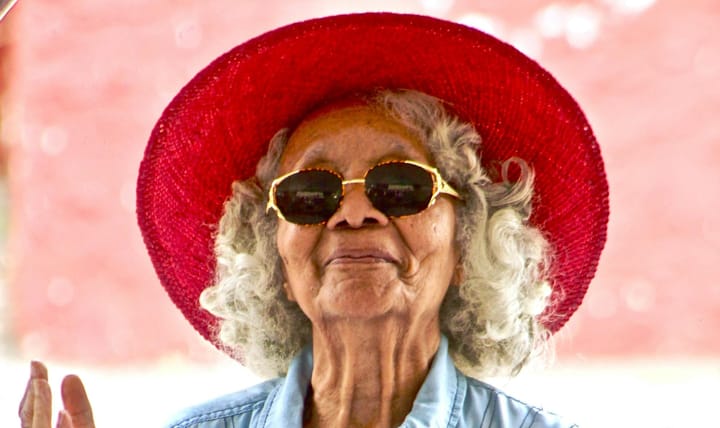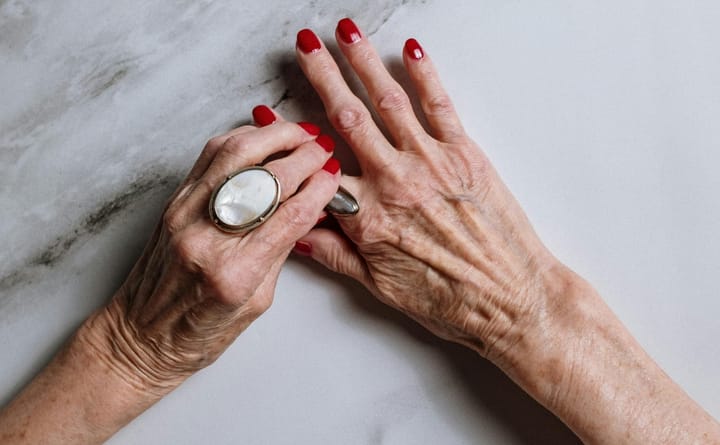Noodle This: Steph's Favorite Things 2024
The first list of Steph's Favorite things, featuring Noodle This.

Damn right it is back. A list of my favorite relationship and relationship-adjacent things this year is here and I am just DELIGHTED to share it with you. "It" is a misnomer - "they" is more accurate - as I will be sending a few different lists based on topic over the course of the month.
We are kicking off Steph's Favorite Things with a list of ideas that have stuck in my brain and I think about often: Noodle This. Let me know your thoughts and questions. Noodling is always more fun with friends.
- The Polycrisis: Why can’t we stop talking about nonmonogamy? by Brandy Jensen
As someone who has been actively seeking out research, books, and any other form of communication on polyamory and open relationships for the better part of 25 years, I am simply delighted (again!) to see that there is someone out there who thinks that we can't stop talking about it. GIVE ME MORE I say in my most demanding Oliver Twist voice.
With that being said, I really appreciate the conversation Brandy Jensen explored in this article regarding how we might evaluate nonmonogamous relationships. Read it, and give it a noodle. Here are my introductory thoughts:
There is almost a comparative ideal: Monogamous marriage upholds the traditional family (while reifying individualism and capitalism and a way of life that has been idealized through the single-family home and "keeping up with the - white - Joneses"). Nonmonogamous relationships encourage collectivism and community and - through the lens of romantic love - have the potential to create a new way of life that is more sustainable and (dare I say) loving.
The more I think about how people actually are in relationships, the more I hope that people understand that their relationship of choice should be intentional. Folks are unwilling to acknowledge that their chosen relationship type has the potential to either reify the discourse of monogamy or disrupt it.
Do people have to understand the implications of their relationships on culture at large? No. Should they? Hard to say. If they can't even get it together in their relationships, should we hope fore more?
Maybe we need to figure out how to love well first before we begin to expect that choice of relationship type would have cultural influence. - 'Left to hold my grief alone.' Grieving platonic love in a culture of romantic domination. by Sherronda J. Brown
I will be much less verbose with this one: one of my biggest life shifts was adjusting my hierarchy to dethrone romantic relationships. My chosen family (what we colloquially call "friends") are just as important to me as my romantic relationships and my bloodline. I make time for them, they are beneficiaries financially, and they are people with whom I actively plan the future. There is a stability in my little world that comes from platonic love.
Sherronda Brown (who I found through the previous author, Brandy Jensen) eloquently describes the particular challenges of platonic love in a world that props up romantic love:
"In a society that privileges romantic partnership, all other connections will inevitably be treated as lesser, and those who are not romantically partnered are seen as less worthy of care—both intentionally and inadvertently" (2022).
Our relationships are, in fact, a kind of currency. People learn how to treat us and our value through their understanding of our interconnections. I am thinking more and more about how I can create legal connections to my chosen family as I move into the new year. How can I continue to demonstrate with my relationships that platonic love is wildly important? - Polywise: A Deeper Dive into Navigating Open Relationships by Jessica Fern
Here we are back to basics. I read Polywise earlier this year - I needed a break from the obsession with attachment styles in Polysecure (written by the same author). It is one of the best books on polyamory I have read in quite some time! Give it a read and let me know your thoughts. - The Rise of “Why Choose” Genre: Embracing Freedom and Diversity in Romance Fiction by Neelakshi Singh
Okay you are likely going to hear A LOT more about this topic in the coming year. For context: I am working on opening Denver's first romance bookstore. It is called Tongue in Cheek Bookshop and I have been building it for just about a year now. It should be unsurprising that I love the romance genre or any story that features relationships as an impetus for the hero's journey.
Lesser known, I have spent a lot of time researching and writing about how fictional worlds allow people to imagine different realities and make them less rigid and more willing to critically think. There are limitations to those claims, but they absolutely intersect with the trend of "why choose" in romance. If you are unfamiliar with this subgenre, read the linked article for more background.
As this trend continues to grow, there are many people who love it, but stand staunchly against it in real life. There are others who only see it as fictional - no way those types of relationships could ever work! (They aren't wrong, many of them are logistically implausible and wildly inaccurate representations of nonmonogamy.) Then, there are the folks who have piqued an interest in other relationship types. Finally, there are those like me, seeking the validation of seeing different relationship styles in literature.
I am still developing my ideas about this, but (in the words of Carrie Bradshaw): I can't help but wonder how people reading about different open relationship styles will influence the perception and ongoing conversations about polyamory. Shit is gonna get weird.
Thanks for hanging in and noodling with me.
In curiosity,
Dr. S. Kay Webb


